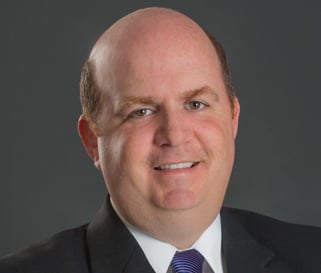I recently spoke with a good friend who is the CEO of a credit union. I asked him what he struggled with, as CEO.
Staff burnout, he said. Almost without hesitation.
Since the great recession and beyond, he's been asking his staff to do more, with less. They are very successful, but cracks are beginning to show. And he worries how much longer things can stay the same.
Does that sound familiar? I bet it does. We struggle with that at NAFCU, as well.
Fatigue, it turns out, is a real threat to productivity. Thisarticle(HBR.org) by Tony Schwartz does a great job of highlighting the issue.
One CEO of a multinational company told me that just dealing with time differences had left him so exhausted he was seriously considering quitting. Another CEO at a much-admired company told me that for the first time, he's losing truly valued employees who say they simply can't take it anymore. In a recent survey at a third organization, over 80% of the top 400 leaders reported they spend the majority of their days feeling negative emotions,fueled in large part by overload and overwhelm.(Emphasis added.)
I've written about this before. In a post about"decision fatigue", I wrote about research that showed how decision making abilities break down when people are overloaded by problems.
Schwartz argues that companies must find ways to renew and reinvigorate their workforce. Otherwise, they face higher turnover, and less productivity from those who remain.
Ah, but there's the rub. We need work to be done. We must balance our budgets. So how do we accomplish the renewal that Schwartztalks about?
I'll take any good ideas that you guys have.Seriously. But here are some thoughts.
I think it is a 2-part task. Part of it is on companies. But the other is on the employee.
As employers, we need to allow for balance in the lives of our colleagues. We must look for signs of burnout, and intervene as necessary. And we must ruthlessly prioritize. If we are doing things that don't jive with our strategic plans, or are not necessary today, we need to consider why we are doing them.
On the other hand, as individuals, we need to take more control over our lives. If I lined up what I do (personal and work) versus what is truly important to me and my family, I know I'd see a disconnect. For example, through Facebook, I keep in touch with hundreds of friends from high school and college. Twenty years ago, that would not have been possible. Is that good or bad? Probably both. While it is great to "like" an update from a buddy's Facebook page, am I spreading myself too thin? Should I trade in some of this stuff for a more simple, management life?
I wish I had answers here, guys. So if any of you have tips to battle fatigue, I'm all ears. I truly believe this is one of those issues that we'll have to deal with sooner rather than later.







